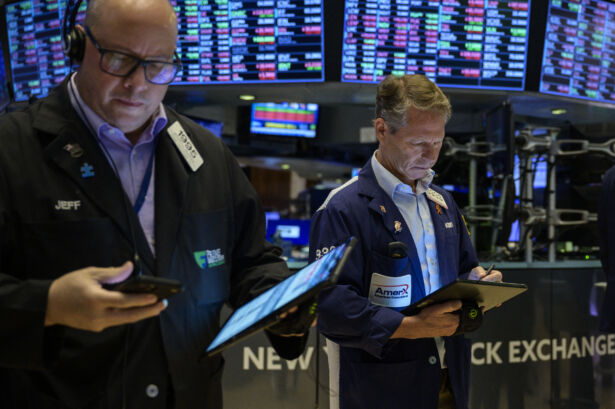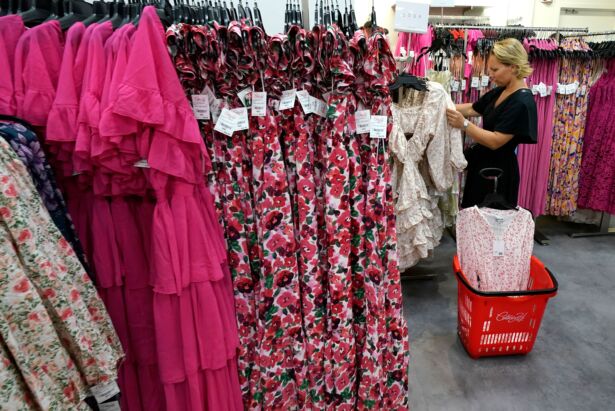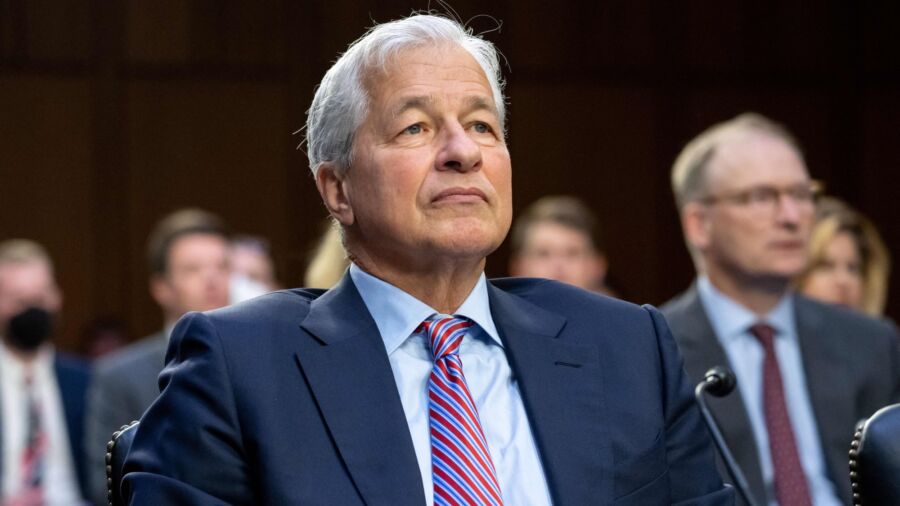JPMorgan CEO Jamie Dimon has warned that many U.S. businesses and investors are ill-prepared for a looming “worst case” scenario in which the Federal Reserve hikes interest rates to an eye-watering 7 percent—while America languishes in the grips of stagflation.
Mr. Dimon issued the stark warning in an interview with Times of India on the sidelines of a financial conference in Mumbai, India, on Sept. 26. On the same day, Wall Street’s main indexes ended over 1 percent down as investors wrestled with the prospect of a long period of high-interest rates to quash persistently high inflation—and the economic fallout.
He touched on the much-discussed theme of recession, saying “no one knows” whether the United States is in for a so-called soft landing, meaning a cooling of inflation and economic growth without triggering an actual contraction, or whether America is in store for a hard landing.
Faced with decades-high inflation, the Federal Reserve has hiked rates at its fastest pace since the 1980s.
Since March 2022, the benchmark Fed Funds rate has catapulted from zero to a range between 5.25-5 percent.
Even though the Fed’s policy-setting committee voted last week to hold interest rates steady, they warned the fight against inflation is far from over and more rate hikes could be in store.
The Fed’s vote was accompanied by its Summary Economic Projections (SEP), which points to an additional 25 basis point rate hike this year, which would send rates to between 5.50 percent and 5.75 percent.
But Mr. Dimon thinks that may not be enough, and the central bank could well take rates as high as 7 percent—and “break stuff” in an economic sense, as Fed watchers like to say.
“I’m not sure if the world is prepared for 7 percent,” he said.
Higher For Longer
Federal Reserve Chair Jerome Powell put a higher-for-longer spin on the path of interest rates, telling a press conference after the policy decision was made that inflation has a long way to go before reaching the central bank’s target of around 2 percent. His remarks sent stocks lower, with higher-for-longer interest rate fears seeming to weigh on investors into this week.

Mr. Dimon delved into the theme of higher-for-longer interest rates in his interview with Times of India, saying that the early rate hikes were basically meaningless—and it’s the later ones that brought pain.
“First of all, interest rates went to zero. Going from zero to 2 percent was almost no increase,” he explained. “Going from zero to 5 percent caught some people off guard, but no one would have taken 5 percent out of the realm of possibility,” he said.
“I’m not sure if the world is prepared for 7 percent,” he continued. “I ask people in business, ‘are you prepared for something like 7 percent?’ The worst case is 7 percent with stagflation.”
Stagflation is a toxic mix of stagnant economic growth (or even recession) and high inflation.
“If they are going to have lower volumes and higher rates, there will be stress in the system,” Mr. Dimon continued, of the double-whammy of high borrowing costs plus sluggish business.
“We urge our clients to be prepared for that kind of stress,” he added.
Mr. Dimon then referenced a famous and often-cited quote from legendary investor Warren Buffett.
“Warren Buffett says you find out who’s swimming naked when the tide goes out,” Mr. Dimon said. “That will be the tide going out. These 200 basis points will be more painful than the [jump from] 3 percent to 5 percent.”
Mr. Dimon’s warning that businesses and investors aren’t prepared for rates to go to 7 percent feeds into a broader concern of a looming recession.
The recessionary drums beat louder last week as a key U.S. economic gauge from the Conference Board dropped for the 17th consecutive month.
“With August’s decline, the US Leading Economic Index has now fallen for nearly a year and a half straight, indicating the economy is heading into a challenging growth period and possible recession over the next year,” Justyna Zabinska-La Monica, senior manager, Business Cycle Indicators, at The Conference Board, said in a statement.
‘Sugar High’
Mr. Dimon said there’s a false sense of confidence among some investors in America about the resilience of the economy in the face of turbulence caused by high inflation and the policy moves meant to quash it.
“I would be cautious,” he said. “I think we are feeling pretty good because of all the monetary and fiscal stimulus, but it may be a little more of a sugar high.”
Fears that the COVID-19 pandemic would lead to an economic meltdown led to an explosion of deficit spending, which has largely continued in Washington but that Mr. Dimon said “can’t continue forever.”
All that stimulus has put money in the pockets of consumers, but assumptions that the U.S. economy can continue to boom on the back of consumer strength is dubious, as many economists have pointed out. Mr. Dimon made the same point at a financial conference in New York earlier in September.
“To say the consumer is strong today, meaning you are going to have a booming environment for years, is a huge mistake,” he said.
Consumer spending, which represents roughly 70 percent of U.S. gross domestic product, posted solid growth in July, the latest month of available data. However, economists widely expect the past year of aggressive Fed interest rate increases to weigh more heavily on domestic demand.
The latest data on retail sales showed that Americans spent more than expected in July, splurging on hobbies, sporting goods, and clothing, prompting economists at Goldman Sachs to raise their third-quarter gross domestic product estimate by seven-tenths of a percentage point to a 2.2 percent annualized rate.

However, there are signs that the boom may not last, since the latest consumer tracker for August from Deloitte says that financial well-being sentiment has stagnated, with the percentage of consumers worried about savings and postponing big purchases on the rise, while spending intentions “remain on a long-term downtrend.”
A separate barometer of consumer confidence from the Conference Board found that after a sharp uptick in July, its August gauge retreated to a reading “a hair above 80—the level that historically signals a recession within the next year.”
And on Sept. 26, the Conference Board released the latest data on consumer sentiment, showing that confidence in September took another hit, this time sinking below the recession threshold.
“Expectations for the next six months tumbled back below the recession threshold of 80, reflecting less confidence about future business conditions, job availability, and incomes,” said Dana Peterson, chief economist at the Conference Board.
While financial markets have, over the summer, largely dismissed recession fears, fresh data suggest that the country may be facing a “stagnation” point.
“A near-stalling of business activity in August raises doubts over the strength of U.S. economic growth in the third quarter,” Chris Williamson, chief business economist at S&P Global Market Intelligence, said in a report that showed new orders tumbling, input cost inflation rising, and the pace of job creation slowing.
From The Epoch Times


